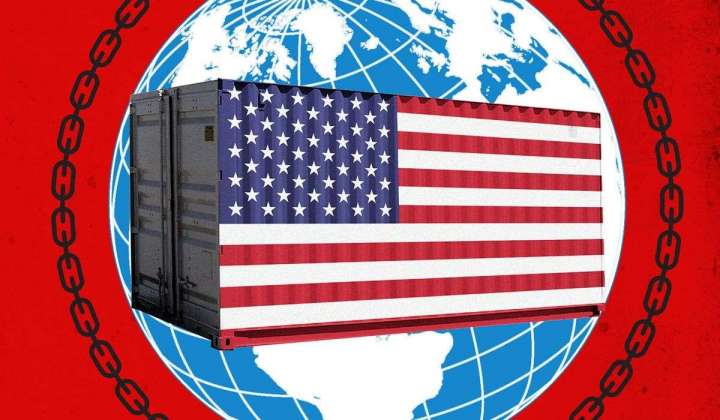U.S. companies should not continue to fuel China’s strength

OPINION:
Recent commentary often focuses on America’s economic and national security, as well as Western norms, ideals and institutions, which are under attack by the Chinese Communist Party. While there is no question that this is true, it doesn’t tell the whole story. In too many areas, we have simply failed to properly assess the threat and protect U.S. interests. No one should question America’s strength and capabilities. But new tools and approaches are needed; the toolbox is outdated, and many of the tools have been unused.
Together, we — a Democrat from Connecticut and a Republican from Texas — and our partners have proposed a new tool that would create a whole-of-government response to allow screening of a tailored set of outbound investments in specific sectors. Our efforts, in concert with and building on the work of our Senate co-authors, have elevated this tool to the center of the U.S.-China agenda. It’s time to get it over the finish line with executive action and statutory provisions that will buttress those actions.
Our work, with other colleagues, is fostered by the National Critical Capabilities Defense Act, a screening process for outbound investments and the offshoring of critical capacities and supply chains to ensure that the United States can quickly detect and address supply chain vulnerabilities and prevent the continued offshoring of critical production capacity and intellectual property to foreign adversaries like the People’s Republic of China and the Russian Federation.
The act offers a long-term solution, but the Biden administration has the ability to stop the bleeding now by taking immediate action through an executive order providing for outbound investment screening to safeguard our national security and supply chain resiliency. A down payment on that executive order was included in the recently passed funding bill with $10 million each to the departments of Treasury and Commerce to detail their efforts on outbound investment, identify the resources needed for full implementation and to get action underway. We cannot wait.
Last year, Congress passed the bipartisan CHIPS and Science Act, providing $52 billion to bolster domestic production of semiconductor chips while reducing our reliance on foreign manufacturing. And while the legislation was equipped with broad guardrails to help ensure that recipients do not build certain facilities in China and other countries of concern, many in industry fought hard against such provisions. Those same entities railed against the Critical Capabilities Defense Act and outbound investment restrictions. America needs provisions that will screen what our companies and, where necessary, are offshoring critical capabilities, limit such efforts.
The CCP has made clear through its policies and actions that it views America as not only a competitor, but an adversary. Our companies must not be allowed to continue to fuel the CCP’s strength while undermining our domestic capabilities.
The administration has the opportunity to act — and every day we wait, America becomes more dependent on China. That is a recipe for disaster — our bipartisan, bicameral coalition in Congress will support actions taken by the Administration and work to provide other tools that are needed. This is a critical area for bipartisan cooperation.
• Rosa DeLauro, a Democrat, has been the U.S. representative of Connecticut’s 3rd Congressional District since 1991. Michael McCaul, a Republican, has been the U.S. representative for Texas’ 10th Congressional District since 2005.






